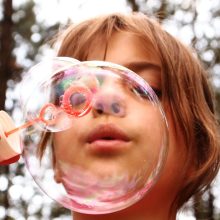Navigating the Terrible Twos: Tips for Parenting Toddlers

Embarking on the journey of toddlerhood brings both joy and challenges for mothers. As your little one explores newfound independence, tantrums and unique hurdles may arise. Fear not, dear moms, for this article serves as a guiding light through the maze of toddlerhood. From effective communication strategies to managing meltdowns, fostering independence, and creating a positive home environment, these practical tips are designed to empower you in the delightful yet demanding adventure of raising toddlers.
- Effective Communication:
- Use simple language and clear instructions: Break down tasks into manageable steps, ensuring your toddler can understand and follow through.
- Encourage verbal expression and active listening: Foster a supportive environment where your toddler feels comfortable expressing themselves, and actively engage in conversations.
- Be patient and give them time to respond: Allow your toddler the space to process information and respond at their own pace.
- Managing Tantrums:
- Stay calm and composed during tantrums: Maintain your composure to provide a sense of stability and security for your toddler.
- Identify and address the underlying cause of the tantrum: Understand triggers and work towards resolving the root issue rather than just addressing the outward behavior.
- Establish consistent boundaries and rules: Clearly communicate and enforce boundaries to provide structure and predictability.
- Fostering Independence:
- Allow toddlers to do age-appropriate tasks independently: Encourage self-help skills like dressing, feeding, and cleaning up, building their confidence.
- Encourage them to make choices within limits: Provide options to foster decision-making skills while maintaining a controlled environment.
- Praise their efforts and achievements to boost confidence: Acknowledge and celebrate even small accomplishments to build a positive self-image.
- Positive Environment:
- Create a safe and stimulating space for exploration: Arrange a child-friendly environment that encourages curiosity and safe exploration.
- Provide a routine for predictability: Establish a daily routine to give your toddler a sense of security and understanding of what to expect.
- Offer a variety of age-appropriate toys and activities: Rotate toys regularly to keep them engaged and stimulate different aspects of development.
- Mealtime Strategies:
- Introduce a variety of nutritious foods: Expose your toddler to a range of healthy foods to develop diverse tastes and nutritional habits.
- Make mealtimes enjoyable with colorful and creative presentations: Present meals in a visually appealing manner to capture their interest.
- Involve toddlers in simple food preparation tasks: Allow them to participate in age-appropriate kitchen activities to build a positive association with food.
- Sleep Routine:
- Establish a consistent bedtime routine: Develop a calming pre-sleep routine to signal that it’s time for bed.
- Ensure a comfortable and soothing sleep environment: Create a cozy and secure sleep space to promote restful sleep.
- Be patient and understanding during sleep regressions: Recognize and navigate through phases where sleep patterns may temporarily change.
- Socialization:
- Arrange playdates for social interaction: Foster social skills by exposing your toddler to play with other children.
- Encourage sharing and taking turns: Teach important social skills through positive reinforcement and gentle guidance.
- Participate in toddler-friendly community activities: Engage in activities that provide opportunities for socialization within a structured environment.
- Positive Reinforcement:
- Use positive reinforcement to encourage good behavior: Reinforce positive behaviors through praise, rewards, and positive attention.
- Offer praise and rewards for accomplishments: Celebrate achievements to motivate and build a positive self-image.
- Redirect negative behavior rather than solely focusing on discipline: Guide your toddler toward more appropriate behavior by redirecting their attention and offering alternatives.
- Self-Care for Moms:
- Prioritize self-care to recharge and reduce stress: Take time for self-care activities that rejuvenate your mind and body.
- Seek support from friends, family, or parenting groups: Build a support network to share experiences and seek advice.
- Remember that it’s okay to ask for help: Don’t hesitate to seek assistance when needed, recognizing that parenting is a shared responsibility.
- Continuous Learning:
- Stay informed about child development stages: Keep abreast of developmental milestones to better understand and support your toddler.
- Read parenting books and articles for guidance: Explore literature that provides insights and strategies tailored to the challenges of toddlerhood.
- Attend parenting workshops or join online communities for shared experiences: Connect with other parents, exchange ideas, and gain valuable insights from shared experiences.
In navigating the terrain of toddlerhood, remember that each day is a new adventure filled with growth and discovery. Embrace the joyous moments, learn from the challenges, and know that your love and guidance lay the foundation for a bright and promising future for your little one. Happy parenting




